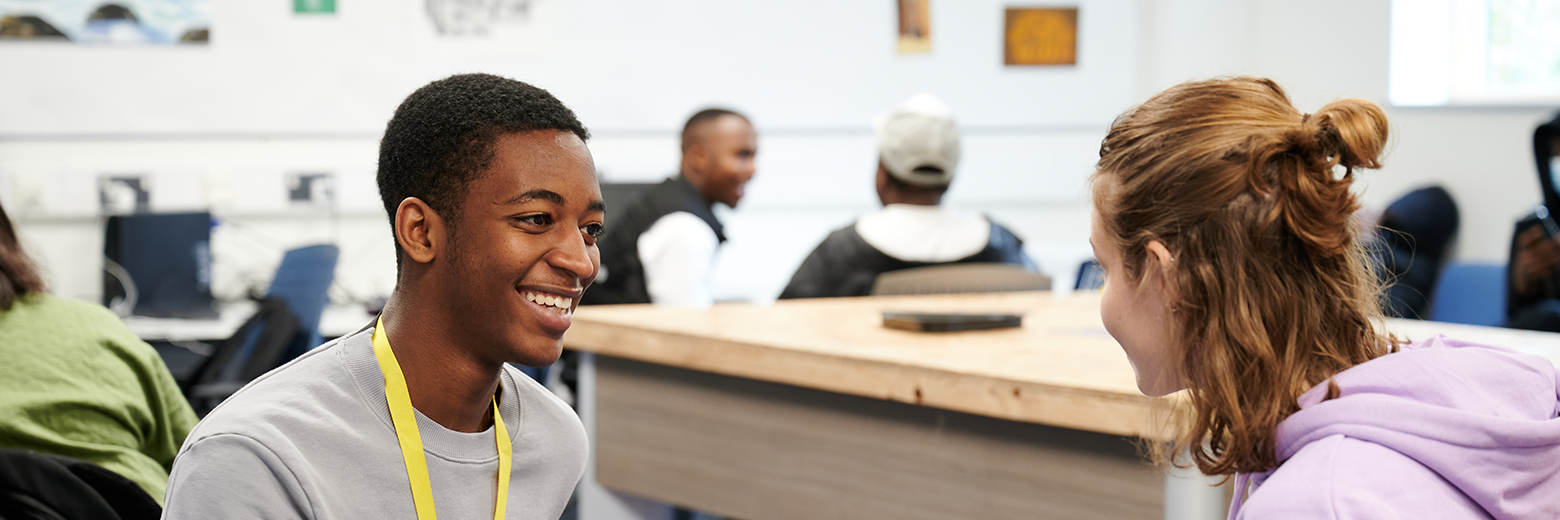Comparing the Thai and UK Education Systems: A Comprehensive Guide for Thai Students Thinking About Studying in the UK.
19th July 24
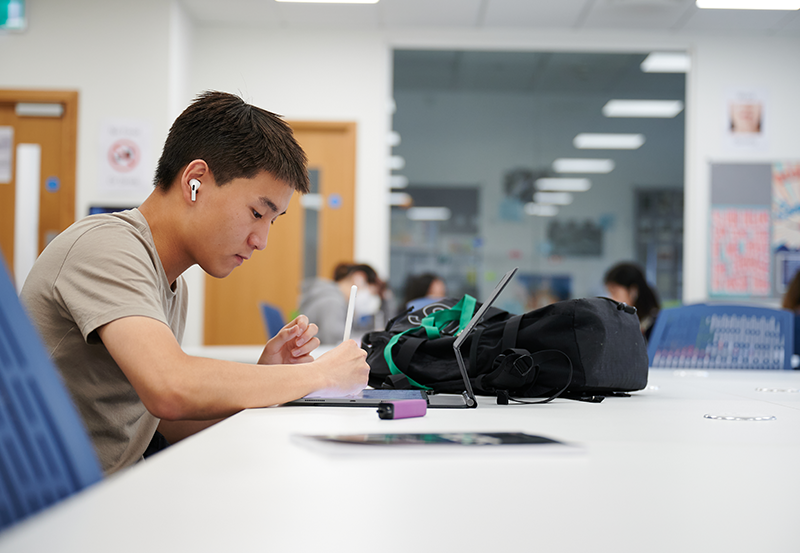
In this detailed blog, we will explore how education in Thailand and England is both similar and different. This is especially useful for Thai students thinking about studying in England. From curriculum structures to teaching methodologies, we’ll explore it all, giving you a clear understanding of what to expect when coming to the United Kingdom for your education.
School System in Thailand
Thailand has implemented education reforms over the past few decades, with laws like the 1999 National Education Act and the 2003 Compulsory Education Act aiming to improve the system.
Basic education, managed by the Office of the Basic Education Commission, follows a 3+6+3+3 structure covering pre-primary to upper-secondary levels. While primary and lower secondary education are compulsory, upper secondary education is free but not mandatory.
The curriculum, based on the Core Curriculum for Basic Education 2008, includes eight core subjects: arts, foreign languages, health and physical education, mathematics, occupations and technology, religion and culture, science, social studies, and Thai language.
Students undergo the Ordinary National Education Test (O-NET) at grades 6, 9, and 12, assessing their knowledge in these core subjects. The tests mainly consist of multiple-choice questions, and upon completion, students receive a learning record and certificates at the end of compulsory education (grade 9) and basic education (grade 12).
School System in the UK
The education system in the United Kingdom encompasses several distinct stages tailored to different age groups and educational needs. Beginning with the Early Years Foundation Stage (EYFS), which caters to children aged 0-5, the focus is on fostering early childhood development through play and structured activities.
Primary education follows, covering ages 5-11, with Key Stage 1 and Key Stage 2 emphasising core subjects like English, mathematics, and science, alongside foundation subjects such as history and art.
Secondary education, spanning ages 11-16, encompasses Key Stage 3 and Key Stage 4, where students prepare for the General Certificate of Secondary Education (GCSE) examinations, which serve as important qualifications assessing their knowledge and skills across various subjects. GCSEs play a crucial role in shaping students’ academic pathways, influencing future educational opportunities, including progression to further education, employment, or higher education.
Further Education (FE) provides post-16 pathways, including A-levels, vocational qualifications, and apprenticeships, preparing students for higher education or employment. Courses can be studied in the Sixth Form of a Secondary School or in a stand alone Sixth Form College.
Finally, Higher Education caters to those aged 18 and above, offering undergraduate and postgraduate degrees across various disciplines in universities and colleges.
Throughout each stage, the UK education system emphasises holistic development, critical thinking, and readiness for future endeavours, ensuring students are equipped for success in both academia and life beyond the classroom.
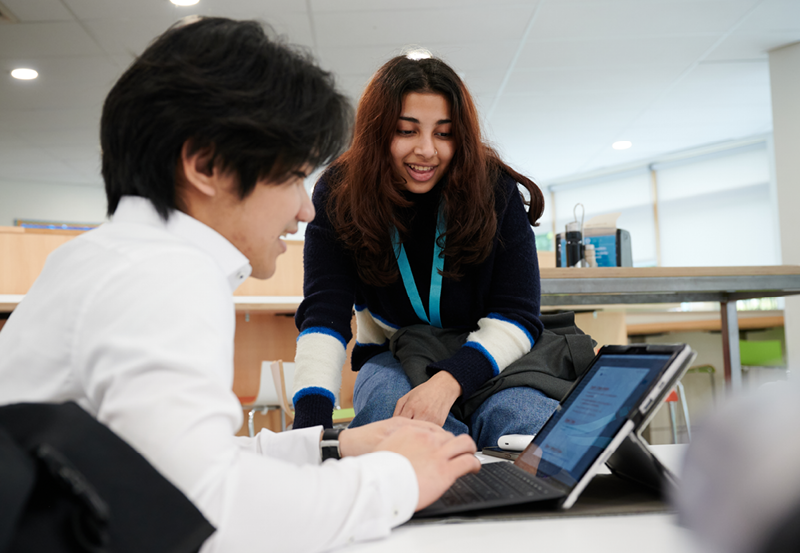
Pre-Primary in Thailand
In Thailand, pre-primary education is offered at no cost and is financed by the government. Participation is optional and open to youngsters aged 3 to 5. Various providers offer early education, including childcare centres, kindergartens, and nursery schools, the majority of which are privately operated.
Pre-Primary in the UK
Pre-primary education in the United Kingdom gives children up to five a taste of a school-like environment before they start primary school. Most children attend part-time and during term-time only.
Primary Education in Thailand
Primary education in Thailand is mandatory and begins at the age of six or seven, lasting for six years (prathom 1 to 6). The primary focus of education is to nurture students’ literacy and numeracy skills.
Each day, a maximum of five hours is dedicated to the eight learning areas outlined in the core curriculum. The main emphasis is on cultivating essential reading, writing, and arithmetic skills, which make up roughly half of the total learning hours in the first three years. After completing this stage, students sit for the initial O-NET examination. This examination assesses the eight core subjects, with each test lasting for 50 minutes, except for art, health and physical education, and occupation and technology, which last for 30 minutes. Upon successfully passing these examinations, students are awarded the Certificate of Primary Education.
Primary Education in the UK
Primary education in the UK consists of Reception, Key Stage 1 and Key Stage 2. Primary education typically begins at the age of four or five and lasts for seven years, from Reception class to Year 6. The curriculum is guided by the Department for Education and includes core subjects such as English, mathematics, science, and physical education, as well as foundation subjects like history, geography, art, and music.
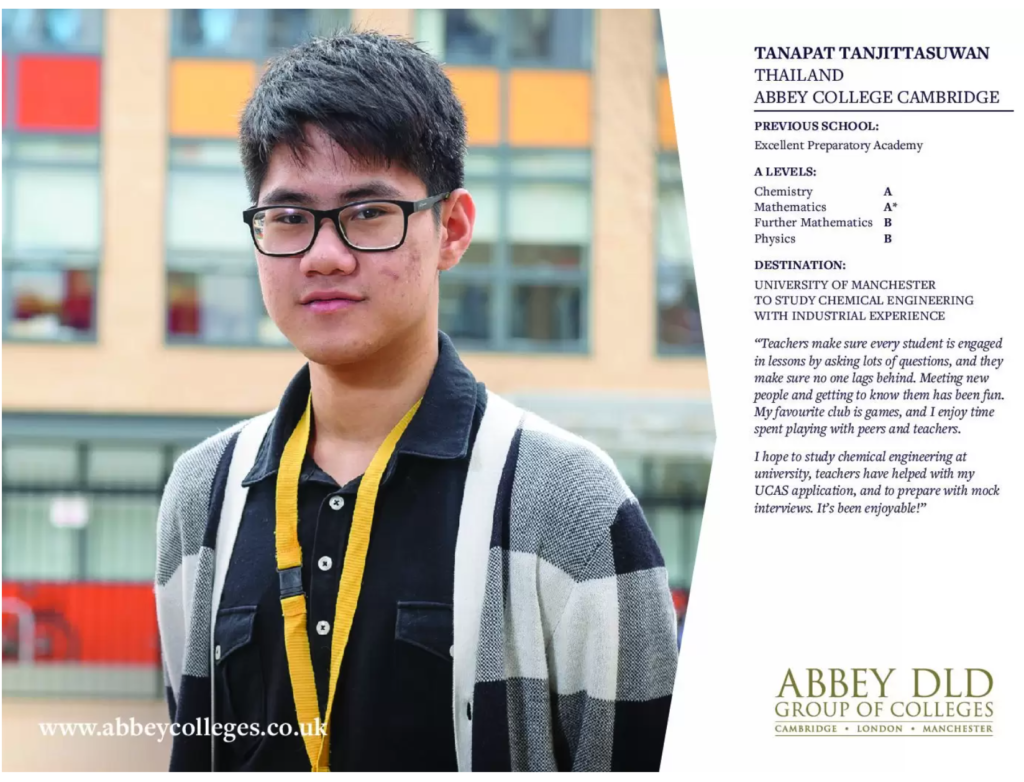
Primary education in the UK aims to develop children’s literacy and numeracy skills, as well as their critical thinking, creativity, and social skills. Assessments are carried out periodically throughout the primary years, with standardised tests known as Key Stage 1 (KS1) and Key Stage 2 (KS2) assessments taken at the end of Years 2 and 6 respectively, although only Key Stage 2 tests are mandatory.
At the end of primary education, children typically transition to secondary school, where they continue their education until the age of 16 or 18, depending on their choices and pathways.
British vs Thai Education System Comparison Table
| Education Stage | Thai Education System | British Education System | Corresponding Ages |
Pre-Primary | Optional, ages 3-5, funded by the government | Optional, ages 0-5, Early Years Foundation Stage (EYFS) | 3-5 |
Primary | Mandatory, ages 6-12, Prathom 1-6, focus on literacy and numeracy, O-NET exam | Mandatory, ages 5-11, Reception to Year 6, focus on literacy and numeracy, Key Stage 1 and Key Stage 2 assessments | 6-12 |
Lower Secondary | Mandatory, ages 12-15, Matayom 1-3, O-NET exam, Certificate of Lower Secondary Education | Mandatory, ages 11-14, Year 7 to Year 9, broad curriculum including core subjects | 12-15 |
Upper Secondary | Optional, ages 16-18, Matayom 4-6, general/vocational streams, O-NET exam, Certificate of Secondary EducationNot applicable, usually enter university after Matayom 6 | Mandatory, ages 14-16, Year 10 to Year 11, GCSE examsPost-16, ages 16-18, A-Level or vocational courses, preparation for university admission | 16-18 |
Higher Education | University admission after Matayom 6, Bachelor’s degrees usually 4 years, competitive entrance exams, programs often in Thai, some in English | University admission after A-levels or equivalent, Bachelor’s degrees usually 3-4 years, various disciplines, admissions managed by UCAS | 18+ |
The Abbey DLD Group of Colleges (ADLD) consists of three independent boarding schools located in Cambridge, London, and Manchester, offering a wide range of academic study programmes.
At Abbey DLD we strive to achieve the highest academic standards whilst providing a welcoming, safe, high-quality learning and boarding experience for students from around the world. Our aim is to help our students achieve the academic success needed to progress to the UK and the world’s top universities, whilst also developing the personal skills and qualities to succeed at university and beyond.
We offer GCSEs, BTECs, A Levels and International Foundation Programmes to give our British and International students access to UK and international universities.
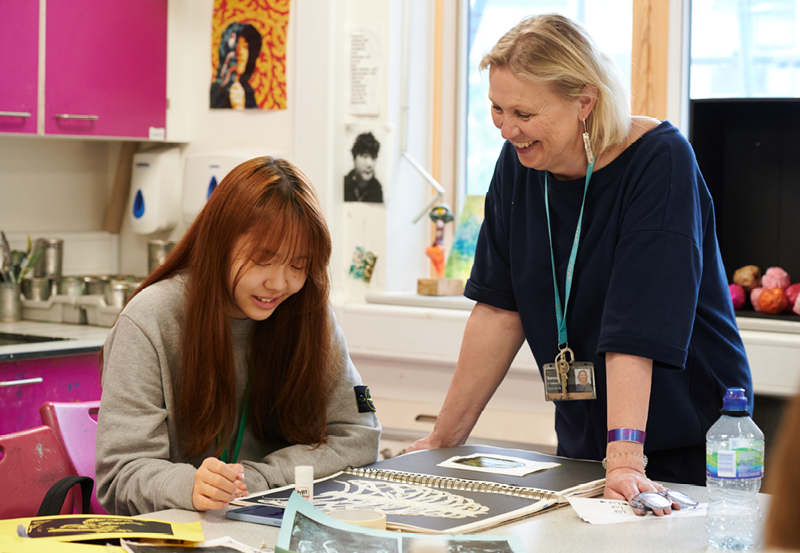
Secondary Education in Thailand
Secondary education in Thailand spans six years and is split into lower secondary and upper secondary phases.
-
Lower Secondary
In Thailand lower secondary education typically covers the ages of 12 to 15, the three-year lower secondary cycle (grades 7 to 9, matayom 1 to 3) marks the final stage of compulsory education. Credits are used to determine the importance of a course; one credit equals 40 hours per semester.
Lower secondary education concludes with the second O-NET examination, and learners receive a record of learning along with the Certificate of Lower Secondary Education (also known as Maw 3).
-
Upper Secondary
Upper secondary education in Thailand typically covers the ages of 16 to 18. Upper secondary education in Thailand spans three years (grades 10 to 12, matayom 4 to 6) and offers two distinct streams: the general and vocational pathways.
The general stream branches into arts and science divisions, culminating in the final O-NET examination and the awarding of the Certificate of Secondary Education (also known as Maw 6). Advanced specialisation courses are available for high-achieving students in select subjects. Credits are also used at this level, with one credit equivalent to 40 hours per semester.
Graduation requirements for upper secondary education are specified by the Ministry of Education and are based on The Basic Education Core Curriculum (2008):
Students must have completed a minimum of 81 credits.
- Students must have achieved at least 77 credits (41 credits for basic courses and 36 credits for supplementary courses).
- Students must meet the passing criteria for reading, analytical thinking and writing skills, desired characteristics, and learner development activities.
Secondary Education in the UK
Secondary education in the UK typically spans five years, divided into lower secondary (Years 7-9) and upper secondary (Years 10-11). The curriculum covers a wide range of subjects, including English, mathematics, science, humanities, languages, and the arts. Students work towards qualifications such as GCSEs during upper secondary. English is the primary medium of instruction, with other languages offered as additional subjects. Overall, UK secondary education aims to develop critical thinking, independent learning, and essential skills for future endeavours.
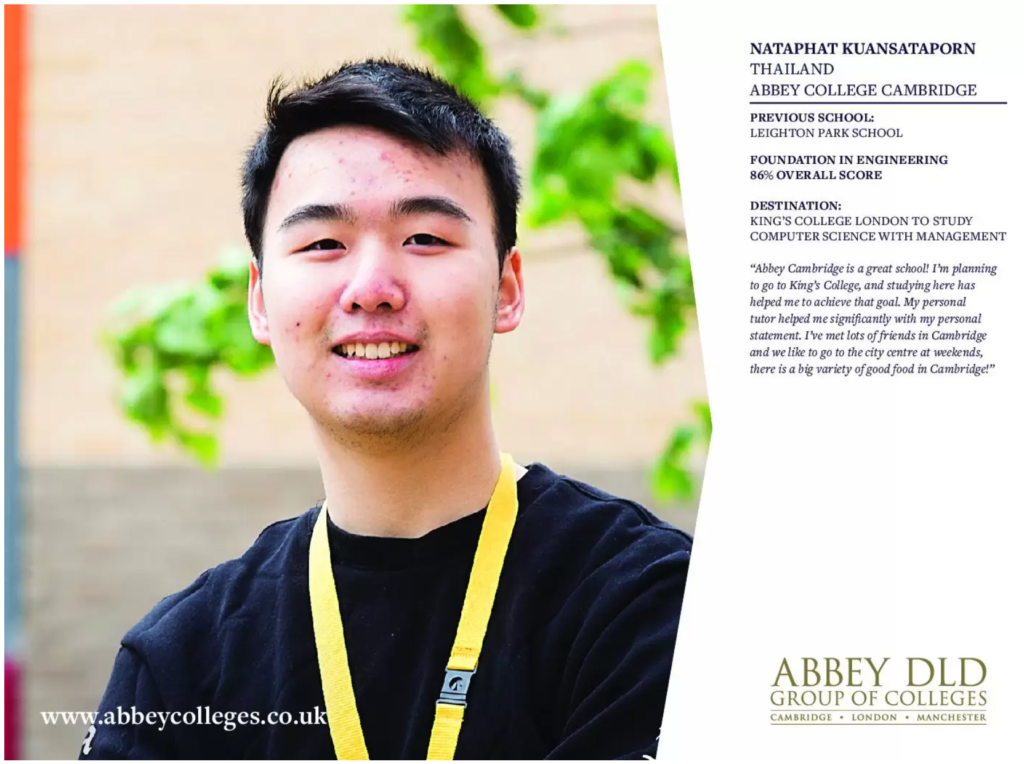
· Lower Secondary in the UK
In the United Kingdom, lower secondary education, typically for students aged 11 to 14, is a crucial stage in their academic journey. At this level, students in Year 7 to Year 9 follow a diverse curriculum aimed at providing a broad foundation of knowledge and skills.
In Year 7, students transition from primary to secondary school, where they consolidate their learning from primary education while also being introduced to new subjects and concepts. Throughout Years 7 to 9, students study core subjects such as English, mathematics, science, history, geography and languages (often including French, Spanish, or German). Additionally, they may explore subjects like art, music, design and technology, computing, physical education, and personal, social, and health education (PSHE).
While English remains the primary language of instruction, schools may offer additional language options for students to study, broadening their linguistic abilities and cultural understanding.
Assessment methods during lower secondary education vary, but they often include a combination of exams, coursework, and ongoing teacher assessments to track progress and identify areas for improvement.
· Upper Secondary in the UK
In the United Kingdom, upper secondary education, commonly referred to as Key Stage 4, typically covers the ages of 14 to 16 and corresponds to Years 10 and 11 of secondary school. During this phase, students work towards obtaining qualifications such as the General Certificate of Secondary Education (GCSE) or equivalent qualifications.
Admission to upper secondary education is not based on a specific examination but rather on the completion of lower secondary education. Students have the option to pursue a variety of subjects based on their interests and career aspirations.
Core subjects during upper secondary education in the UK typically include English, mathematics, science, and a range of optional subjects such as history, geography, languages, art, design and technology, and physical education. While there are no mandatory national examinations for all subjects, students are assessed through a combination of coursework and final examinations.
The culmination of upper secondary education in the UK is the attainment of GCSE qualifications. Students typically take between 8 and 10 subjects, with grades awarded individually for each subject. Achieving a pass grade in English and mathematics is often considered essential for progression to further education or employment.
After GCSE, there’s the post-16 phase, which introduces A-Level qualification. Key Stage 5 for 16 to 18 year olds is normally taught in a school’s Sixth Form or a college and most students who wish to progress to university will study three or 4 A Levels or a BTEC course.
In Thailand, higher secondary education typically covers grades 10 to 12, with students aged 16 to 18, culminating in the completion of Mathayom Suksa 6 (Maw 6), or the Certificate of Secondary Education. However, this qualification is considered a lower level compared to the UK’s A Levels. Thai students who wish to study at a UK university will need to meet the entry requirements typically demanded by British institutions. This usually involves obtaining British qualifications such as A Levels, which provide the necessary points for university entrance, or completing a recognised foundation course after Maw 6. This additional preparation ensures that Thai students are academically ready to meet the rigorous standards of UK higher education.

Do You know:
Every year Abbey DLD Students achieve outstanding results and move on to join some of the world’s most prestigious and highly-ranked universities. In 2023, 41% of our A Level students and 38% of our Foundation students progressed to Russell Group Universities, and 14 of our students progressed to study at Oxbridge Colleges or Medical School.
Higher Education in Thailand
To gain university admission, completion of 12 years of education and obtaining the Certificate of Secondary Education (Maw 6) is generally required. Some universities may necessitate entrance examinations such as the Thai University Central Admission System (TCAS). Conversely, open-admission universities admit students based on the Certificate of Secondary Education (Mathayom 6), without additional entrance exams. Admission to most public higher education institutions is selective, resulting in intense competition for placement.
The Thai language serves as the predominant medium of instruction in higher education. Although English is a mandatory subject during the first year of university, it’s typically not compulsory thereafter, except for specific disciplines. Nevertheless, there’s widespread availability of degree programs conducted in English, and some institutions offer bilingual programs in both English and Thai.
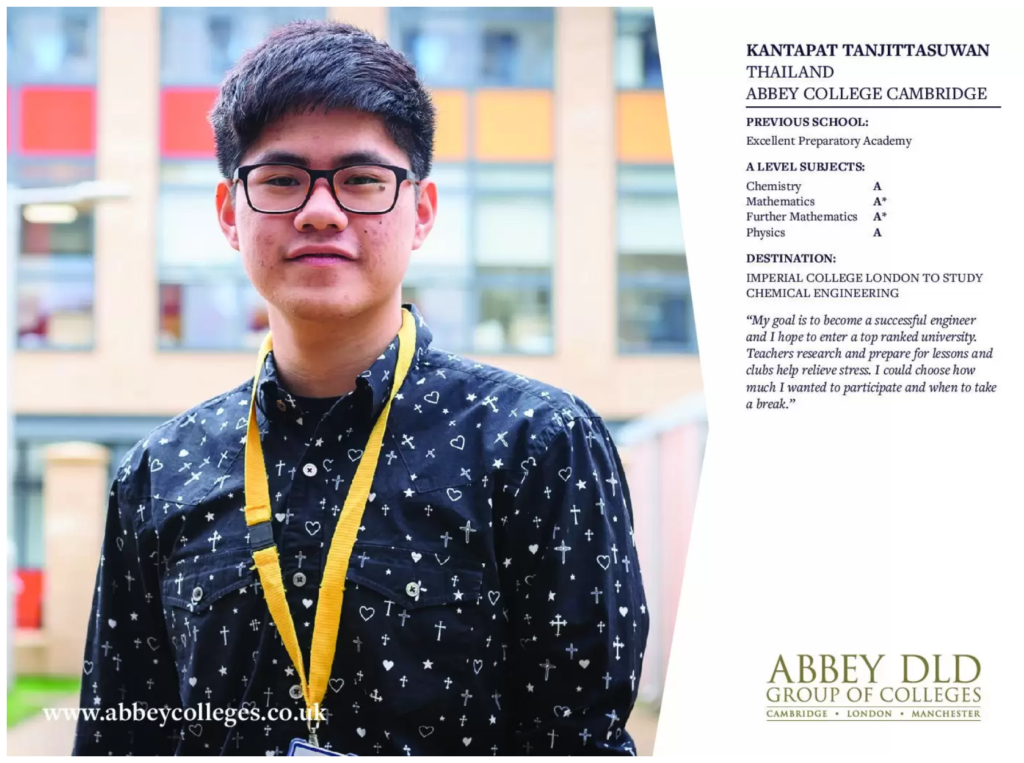
· Bachelor’s Degree in Thailand
In Thailand, the Bachelor’s degree is categorised as level 2 within the National Qualifications Framework for Higher Education. Its purpose is to foster a comprehensive understanding of a specific field of study.
Typically, Bachelor’s degrees span four years of study. However, programs like architecture, dentistry, and pharmacy extend to five years, while degrees in medicine and veterinary medicine require six years.
Each degree program requires a minimum of 120 credits for a four-year duration, 150 credits for a five-year duration, and 180 credits for a six-year duration. Among these, 30 credits encompass general education subjects.
Professional degrees undergo development in collaboration with relevant regulatory bodies to ensure that graduates are eligible for immediate employment upon completion of their studies.
Higher Education in the UK
Since 2018, the Office for Students (OfS) has autonomously regulated the English higher education sector. Each institution in this sector, being autonomous, establishes its own admission criteria, typically assessing a student’s performance in A-level examinations or Highers. Generally, students are anticipated to pursue three A-level subjects. Certain courses may require specific subjects and grades.
University admissions for undergraduates in the UK are managed by the Universities and Colleges Admissions Service (UCAS), which coordinates the admission process and offers students information regarding entry prerequisites for particular courses.
· Bachelor’s Degree in The UK
In England, standard courses typically span three or four years (when pursued full-time) and culminate in an Honours Bachelor’s degree, such as Bachelor of Arts (BA (Hons)) or Bachelor of Science (BSc (Hons)). Honours programmes are highly specialised, with students concentrating on one or two subjects throughout their degree program. Conversely, Bachelor (Ordinary) degrees, though less common, offer less rigorous coursework, covering a broader range of subjects compared to Honours programs. These courses are evaluated through both examinations and coursework, and they are alternatively referred to as Pass degrees.
Degree programs like Bachelor of Dentistry (BDS), Bachelor of Medicine and Bachelor of Surgery (MBBS, MBChB, or BMBS), and Bachelor of Veterinary Medicine (BVMed) / Bachelor of Veterinary Science (BVSc) typically extend over five years.
Conclusion
In summary, the comparison of Thai and UK education systems provides valuable insights to Thai students contemplating studying in the UK. . While both systems aim to prepare students for their future, they differ significantly in structure, curriculum, and assessment methods.
Thailand emphasises compulsory education and standardised testing, whereas the UK offers a diverse educational journey focused on holistic development and critical thinking. Understanding these differences will empower Thai students to make informed decisions about their educational journey in the UK, ensuring they thrive academically and personally.
Please note that our three colleges, each with its own unique character, all share a common goal: to deliver outstanding educational and residential experiences for students aged 13 to 21. We offer GCSE, A Level, BTEC and International Foundation Programme courses. We do not provide university-level undergraduate or postgraduate education.
Blog Author

Joyce Zhao
Regional Manager, Asia
Tel: +86 15821515886
Get in touch today:
Since 1931, the Abbey DLD Group of Colleges has been synonymous with high-quality education, top university destinations, and enriching academic and pastoral experiences. Abbey DLD students graduate equipped with the skills to progress in their university studies and future careers, with friends from all around the world, and having made memories to remember for a lifetime.
Want to learn more about studying at the Abbey DLD Group of Colleges? Simply complete the form below and one of our admissions advisors will be in touch with you shortly.


